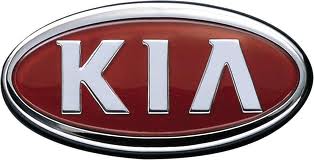Sephia LS Sedan Airbag System Information

module or any open flame or temperatures in excess of 300°F. Do not of its components. Never expose the module or any of its components to
electricity. Failure to comply with this warning can lessen the integrity of the module, causing fires, chemical exposure, or unintended deployment, which
may cause serious injury or death.
Damaged live air bag module storage
Damaged live air bag modules should be stored away from all acids, halogens, heavy metals and metal salts. Damaged units may produce hydrozoic acid
if exposed to liquids. If an undeployed air bag module or inflator is ruptured or tampered with, refer to the Material Safety Data Sheet (MSDS) for the
particular module for important information concerning the constituents of undeployed modules. Exposure to high concentrations of Propellant mixture
can cause headaches, nausea, blurred vision faintness, cyanosis, lowering of blood pressure or tachycardia. Failure to comply with this warning can result
in fire, noxious fumes, severe personal injury or death.
Out-of-vehicle deployment
Out-of-vehicle deployment should be performed in an open area, away from other personnel. Verify that there is no loose debris or flammable liquid near
the air bag assembly. All personnel should be behind protective cover (i.e., wall, vehicle) to shield their bodies from potential projectiles. Do not attempt
to deploy a ruptured air bag module. Failure to comply with this warning may result in severe injury or death. Refer to Air Bag Deployment and
Disposal.
Danger of fire
Air bag module components are very hot after deployment. Units should be deployed outdoors or in open areas to prevent fires. Allow components at
least twenty minutes to thoroughly cool. Cooling modules should be continuously monitored to ensure hot components do not create fires with spilled
liquids or other debris. Failure to allow the unit to cool could result in burns, fires or personal injury.
Storage/Transportation/Disposal/Recycling
Storage, transportation, disposal and recycling of air bag module and components must be performed in accordance with all applicable federal, state, and
local regulations including, but not limited to, those governing fire codes, EPA, OSHA and DOT regulations.
